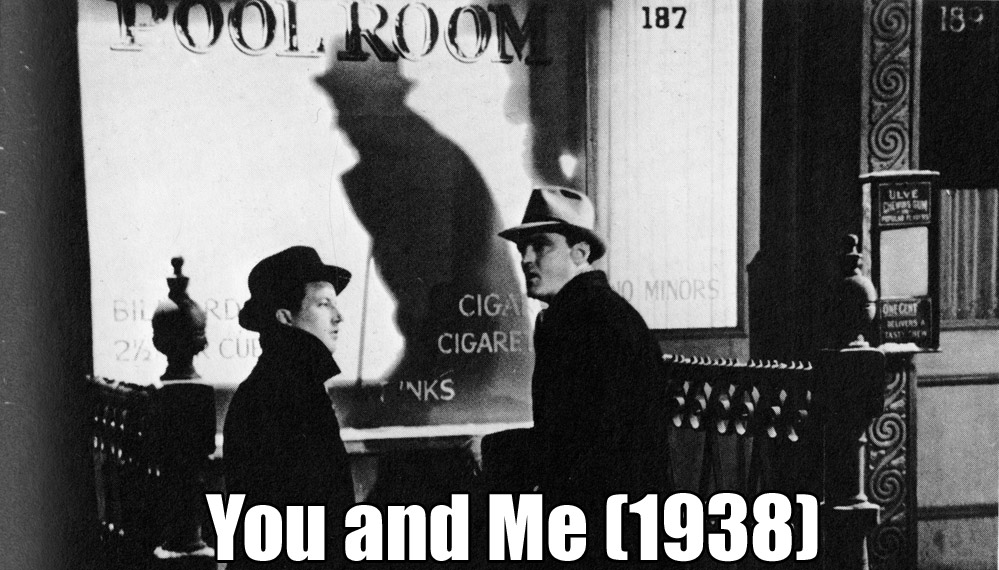

© 2013 William Ahearn
Navigating the émigré population in Los Angeles wasn’t easy for Frtiz Lang. His abusive directing style gave several actors – Peter Lorre, for one – reason to avoid Lang. Others had heard or brought with them stories and suspicions of how Lang may have murdered his first wife, Lisa Rosenthal. Seymour Nebenzal, the producer of “M,” and other Weimar-era classics, had another reason. According to Nebenzal’s son, Harold, and related in Patrick McGilligan’s Fritz Lang: The Nature of the Beast, Lang avoided Nebenzal “because my father knew who he was in Berlin; knew that he flew a big swastika flag from his house.”
None of that was known outside the small world of the émigrés and so it seemed a natural progression that two of the leading lights of the Weimar-era would team up for a film in Hollywood. Fritz Lang and Kurt Weill – the composer for Bertolt Brecht’s “The Three Penny Opera” (among other notable works) – sounded like a dream team. There was only one small problem: Kurt Weill hated Fritz Lang’s guts.
In a letter to his wife, Lotte Lenya (and quoted in the McGilligan book), Weill writes: “Lang makes you want to puke. Nobody in the whole world is as important as he imagines himself to be” and “[Lang] opposes me at every opportunity and is so incredibly unmusical it makes you want to tear your hair out.” Lang’s being “unmusical” was never a secret and Weill never found “You And Me” remotely interesting and Weill didn’t remain with the production long and after the first preview – according to his biographers Les Symonette and Kim H Kowalke, and cited in the McGilligan book – when the film reached final cut, “nothing of [Weill’s] formal conception” remained in the film.
The idea for “You and Me” didn’t start with Lang. It began with Norman Krasna and there’s a story that Carole Lombard was attached to the film and left when Norman Krasna chose to direct (although I can’t source that story). She was replaced by Sylvia Sidney and Sidney suggested Fritz Lang to direct. Or Krasna picked Lang. These stories are sometimes impossible to sort out. When Lang came aboard he suggested doing it in the style of a Lehrstück or teaching play ala Bertolt Brecht (who had nothing to do with the film). Lang signed a two-picture deal with Paramount and began working on the script with Norman Krasna and then Virginia Upp took over. One would think after his own personal regrets about the insipid message in “Metropolis” he would avoid another script that could be summed up in the word “fairytale,” as Lang would describe it later to Peter Bogdanovich.
The story is of a department store that hires ex-cons as part of its policy and the drama and comedy concerns the love of two employees and that one (Sylvia Sydney) has kept her prison record a secret from him (George Raft) and how the “gang” wants to rob the department store only to be caught and given a lesson – on a blackboard from Sylvia Sydney – on how crime doesn’t pay. The big lugs come around and there’s even the birth of a baby to lighten up the already jovial mood.
Coming after “Fury” and “You Only Live Once,” “You And Me” seemed to be trivial “social commentary” and even Lotte Eisner in Fritz Lang declared it a failure. Frank S Nugent in The New York Times wrote:
“Fritz Lang, one of the few practicing impressionists in Hollywood, had attempted to combine boy-meets-girl with the Greek chorus with rather curious result in Paramount’s “You And Me.” [. . . ] It is a good cause he is fighting, but it is one which cannot be fought with compromises. No director can serve two styles at once.”
Graham Greene wrote in The Spectator: “No star has been treated worse than Lang is here by his scenario-writers. [. . .] A few experiments are made with verse and chanted speech . . . but they are only the desperate contortions of a director caught in the Laocoon coils of an impossible script.”
Lang told Peter Bogdanovich in Fritz Lang In America that “‘You And Me’ was an unfortunate affair from the beginning – you know, sometimes things are jinxed. In the middle of the picture, Weill left – he didn’t want to stay any longer, so he went to New York. It was very unfortunate.”
There are some of the cinematic touches that Lang is known for. Not enough to save the film with the critics as “Fury” and “You Only Live Once” did and not enough to raise the film above its insipid and contrived script and that didn’t cushion the blow of it being an all out flop. That, of course, didn’t prevent Lang from pissing off the studio. They gave him his paid vacation and that was pretty much it. Paramount negotiated an end to Lang’s contract.
In 1939, Lang wrote two treatments. “Men Without A Country” was about – according to Fritz Lang In America – “an international spy ring on the trail of a new secret weapon – a ray that destroys one’s sight” and “Americana” “a Western that would tell one hundred years of the country’s history through the story of a lost mine.” It was this interest – according to Bogdanovich – “that led Darryl Zanuck to offer [Lang][“The Return of Frank James”].